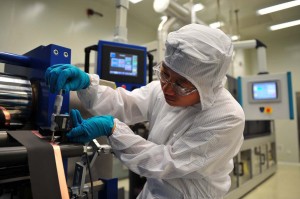China became the world’s largest trading nation in 2013, overtaking the US in what Beijing described as “a landmark milestone” for the country.
China’s annual trade in goods passed the $4tn (£2.4tn) mark for the first time last year according to official data, after exports from the world’s second largest economy rose 7.9% to $2.21tn and imports rose 7.3% to $1.95tn.
As a result total trade rose 7.6% over the year to $4.16tn. The US is yet to publish its 2013 trade figures, but with trade totalling $3.5tn in the first 11 months of the year, it is unlikely to beat China.
The shift in the trading pecking order reflected China’s rising global dominance, despite a slowdown in economic growth last year.
Zheng Yuesheng, a spokesman for China’s customs administration, said: “It is very likely that China overtook the US to become the world’s largest trading country in goods in 2013 for the first time. This is a landmark milestone for our nation’s foreign trade development.”
China had already become the world’s largest exporter of goods in 2009.
The country’s trade surplus rose 12.8% in 2013 to almost $260bn, but the December surplus of $25.6bn was down 17.4% and fell short of the $31.15bn predicted by economists in a Reuters poll.
Stan Shamu, market strategist at IG, described the December figure as “a high-quality miss once dissected”.
“Imports were up 8.3%, easily surpassing expectations of 5% and showing the second highest nominal reading ever recorded. While exports missed estimates at +4.3% (as opposed to the expected +5%), the value of exports was the highest ever recorded.”
There have been concerns in recent months over the accuracy of the country’s trade data, with speculation that some Chinese companies have overstated their exports to circumvent controls on cross-border transactions and bring more cash into the country.
However analysts said a recent clampdown on such activity was likely to result in more accurate data. In May last year China’s foreign exchange regulator, the state administration of foreign exchange, announced plans to more closely scrutinise exports paperwork and impose tougher penalties where deals had been faked.
Sun Junwei, China economist at HSBC in Beijing, said: “Recent measures could be working to squeeze out these fake trade activities. We actually think these activities would be relatively contained this year compared with last year.”










